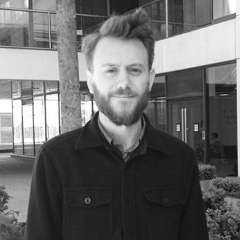Vladimir Jurowski is fond of grand statements, and sometimes off-the-wall programming – genius when it works, baffling when it doesn’t. At the closing weekend of Musikfest Berlin he made his debut as the chief conductor of Rundfunk-Sinfonieorchester Berlin with three lesser-performed 20th-century works and Beethoven’s iconic Fifth Symphony – but unlike you’ve ever heard it before.
Opening the programme was Dimensionen for organ and orchestra by Isang Yun, whose music is having a minor renaissance in celebration of the 100th anniversary of his birth. Born in Korea, the composer moved to West Germany in the 1950s and became a disciple of the avant-garde. He remained a lifelong campaigner for Korean reunification and suffered the consequences: his continued ties with North Korea led to his abduction by the secret service of the South Korean military dictatorship in 1967.
Yun was one of the first to incorporate characteristics of traditional East Asian music into a contemporary classical idiom. Dimensionen, written in 1971 shortly after returning to Germany after his release from imprisonment, takes inspiration from the reedy sound of the East Asian mouth organ, in Korea called the saenghwang. Jurowski led the Rundfunk-Sinfonieorchester with cool restraint, with the Berlin Philharmonie organ intertwining with the ensemble to create harsh harmonies and steely textures that build to a cacophonous climax.
If Yun was a committed bridge builder – between North and South, East and West – Arnold Schoenberg’s life and work was characterised by rupture. The Violin Concerto was the first major work written after fleeing Europe for California in 1934 and uses the 12-tone technique that turned Western music on its head a decade earlier. Soloist Christian Tetzlaff gave a tightly wound performance that emphasised the concerto’s burning passion and the musical bridges Schoenberg never burnt with the Old World and the Vienna of his youth.
Luigi Nono had an activist’s spirit. A paid-up communist and left wing campaigner, the Italian composer held that music and politics were bound together. Fučík is one of many works that use texts by victims of Nazis in the Second World War, in this instance Czech journalist Julius Fučík’s Notes from the Gallows. Martial percussion and fragmented melodies subside into a tender lilting texture that echoes Fučík’s thoughts from his prison cell and haunting last words to his family, delivered with understatement by speaker Max Hopp.
Fučík ends on a defiant note, with the speaker noting that nothing can take away the joy of remembered fragments of Beethoven. For Jurowski, this was the cue for the opening of the Fifth Symphony, which followed without break for applause. The symphony’s basic narrative from darkness to light has been interpreted in a multitude of different ways. Following Nono, and performed using Mahler’s 1895 re-orchestration, it took on a darker hue.
The immortal theme that begins the symphony was ponderous and weighty, heralding a portentous performance using an expanded ensemble over twice the size of Beethoven’s original. This was a world apart from the pace and tautness in vogue thanks to period instrument ensembles such as John Eliot Gardiner’s Orchestre Révolutionnaire et Romantique. There was something overwrought and trying about the sheer scale of the ensemble and Jurowski’s epic vision for this work, mirrored in the unwieldy ambition of the evening’s programme.


